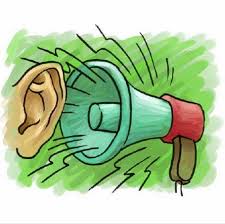Hearing loss is also called as hearing impairment. It is a condition in which a person is partially or totally unable to hear. There are many causes that can impact on hearing. The age-related hearing loss influenced by loud noises. Many are the factors that may cause alterations in hearing of adults, including aging, ototoxicity, cranial-encephalic traumatism, infect-contagious diseases, exposure to intense noise, hereditary succession.
You can purchase the latest hearing aids at a fair price through HearingSol, If you need more information or you have a query about Age-Related Hearing Loss, just give us a call on +91-9327901950. We are always here to help you.
What is the Age-related hearing loss?
The Age-related hearing loss is a very common and natural type of hearing loss. Growing age can impact on people in a different way but after an age hair cell of our inner ear begin to die and the more hair cell dies, the worse our hearing begins. This is the age-related hearing loss.
The age-related hearing loss is also known as presbycusis, It is a gradual loss of hearing in both the ears. According to the expert’s analysis, about 30 percent of the adults over the age of 65 are suffering from hearing loss.
The hearing loss occurs very slowly, some people are not even aware of that. It affects the ability to hear the high pitched sound such as microwave beep sound or phone ringing sound. The ability to hear low-pitched noises is usually not affected.
There are a number of causes that contribute to it such as :
-
Hereditary reason
-
Smoking
-
A certain medical condition such as diabetes.
-
Being overweight
-
Loud noise
-
Consumption of certain medicines for a long time
-
Within the inner ear (most common)
-
Long-term exposure to loud noise
-
Some health conditions, such as heart disease or diabetes
- Side effects of some medicines, such as aspirin and certain antibiotics
How can loud noise influence the age-related hearing loss?
Loud noise exposure can accelerate the impact of the age-related hearing loss. In other words, you ears age quicker and you more quickly lose hearing acuity especially for higher frequencies. Among hearing alterations in adults, presbyacusis, or ear aging, is quite common from 40 and 50 years of age and continues for the rest of life. Age causes a gradual increase in hearing thresholds, and 4000Hz frequency seems to be the most affected in males.
Loud noise exposure also reduces your ability to clearly hear speech in the presence of background noise. This isolates you socially and can be depressing.
Loud bursts of sound, such as gunshots or explosions, which can rupture the eardrum or damage the bones in the middle ear. So the effects of them are superposed in the cochlea, harming hair cells 7-10.
Loud noise exposure can also cause tinnitus—a ringing, buzzing, or roaring in the ears or head.
Sometimes exposure to impulse or continuous loud noise causes a temporary hearing loss that disappears 16 to 48 hours later. Recent research suggests, however, that although the loss of hearing seems to disappear, there may be residual long-term damage to your hearing.
How to prevent these loud noise damage?
The healthcare professionals will advise you with the best treatment plan regarding noise damage. These include:
-
Avoid too much sounds. If there is a loud sound that can damage the hearing, try to avoid that.
-
Use the device that has a low sound rating.
-
Limit the sound that is too loud
-
Wear hearing protection like earplugs and earmuffs
- How well you can handle certain medicines, treatments, or therapies.
- How long the condition is expected to last.
- Your age, overall health, and medical history.
- Assistive devices, such as telephone amplifiers or technology that changes spoken words to text
Key Points
If you have hearing loss, your healthcare professional can refer you to specialists in the hearing loss
- Age-related hearing loss is the gradual loss of hearing in both ears
- It is a common problem that happens with aging. About 30% of adults over age 65 have hearing loss.
- Because the hearing loss happens slowly, some people are not aware of the change at first.
- Avoiding constant or continuous exposure to loud noises can help protect your hearing and prevent gradual hearing loss.
- It is not a reversible condition so prevention is important.
For more information, check out the following:
Why is Ear Protection Important?
Does noise-induced hearing loss get worse over time?
How to improve Hearing Loss and Prevent Hearing With Nutrition?


